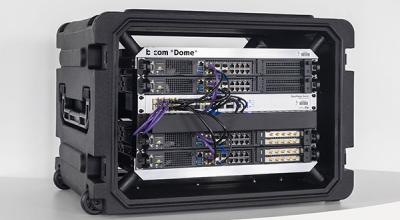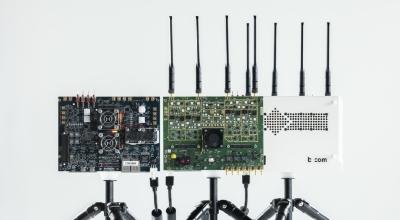Advanced connectivity
No transformation or digital society without connectivity technologies! In a context where data has become a highly sensitive commodity, connectivity is a crucial geopolitical issue. Communication systems are undergoing major changes, with Software Defined Radio (SDR), virtualization, cloudification, flexibility, rapid deployment, and reduced environmental impact.

Historically, b<>com has strong skills in connectivity. Its R&D activities cover a broad spectrum of expertise, from software development, RF, and hardware design to integration and testing. Signal processing is also a key competence, focusing on issues such as synchronization, transmission channel equalization, MIMO, and improving reception performance.
This range of skills means we can master the entire Radio Access Network, including developing hardware/software platforms and end-to-end integration and thus deploying integrators' various use cases and applications.

b<>com takes advantage of the complementary nature of research and industry worlds to rapidly create connectivity solutions tailored to various demands.





